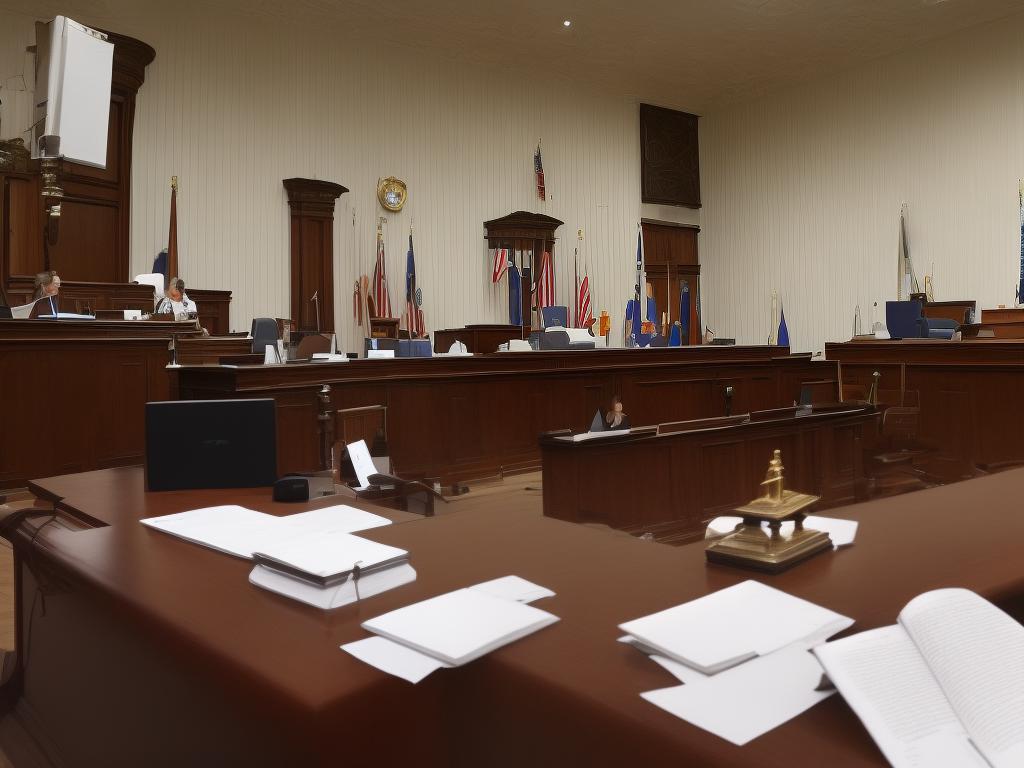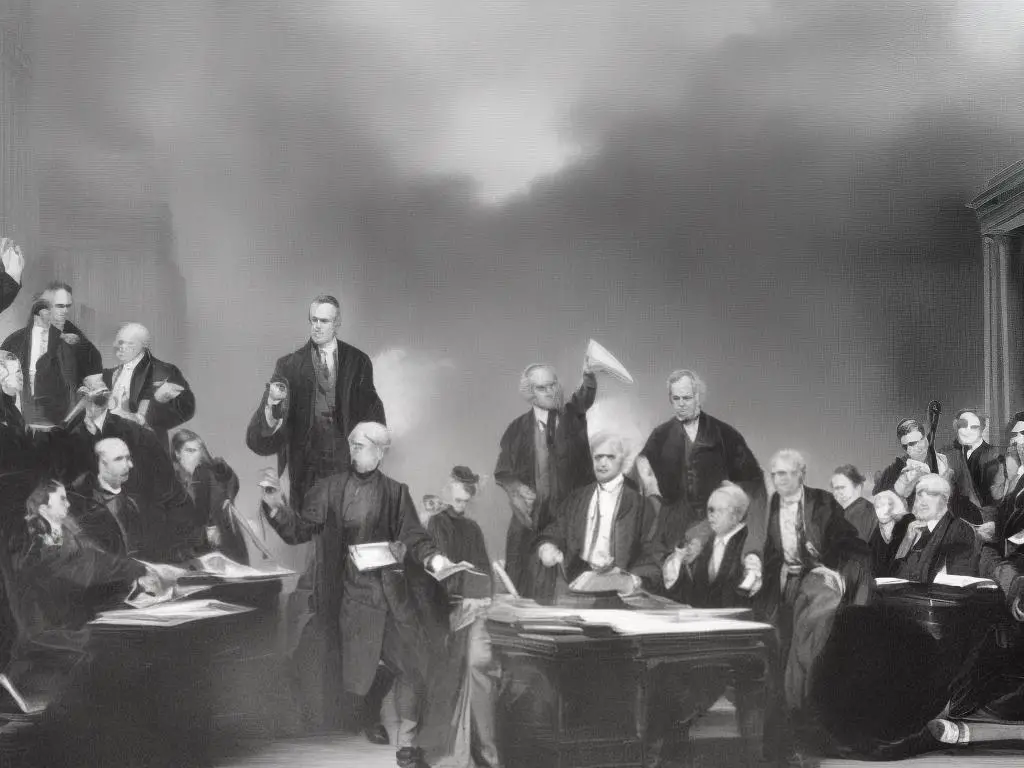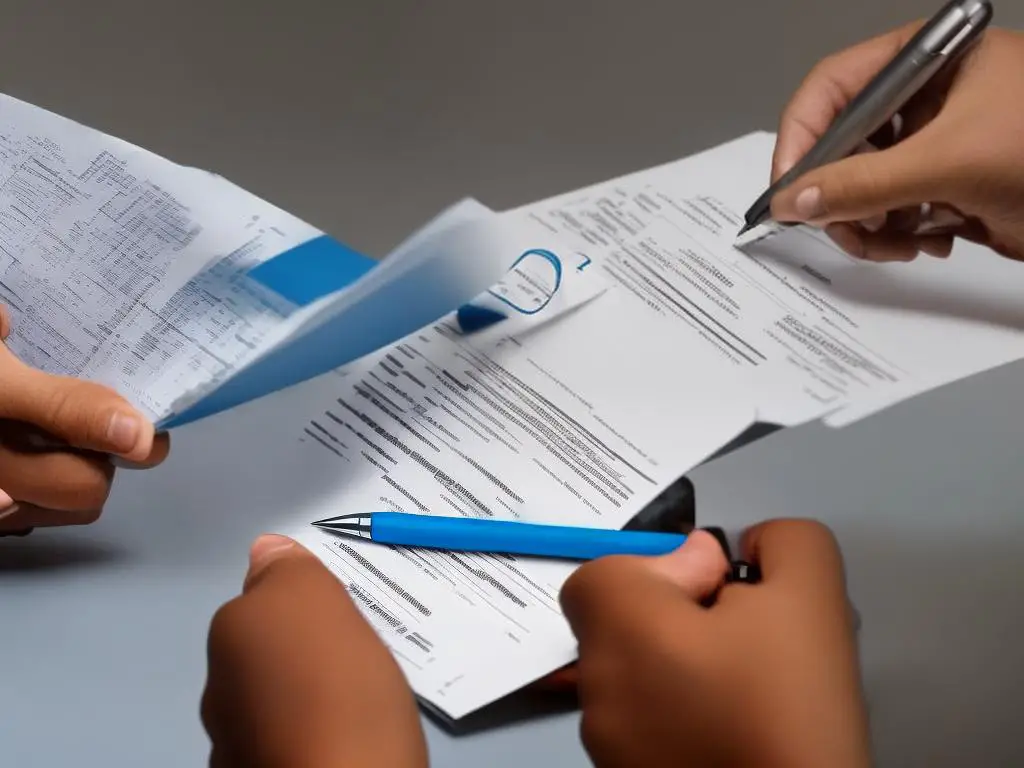Jury duty is a civic responsibility that every American citizen is expected to fulfill when called upon. The U.S. legal system, founded on the constitutional right to a fair trial with a jury of one’s peers, relies on the participation of ordinary people in the decision-making process. Whether you’ve been summoned for jury duty before or it’s your first time, understanding its importance and the legal obligations that come with it is critical. This write-up explores the significance of jury duty, legitimate reasons for being excused, the process involved in applying for an excusal, and the potential consequences of evading this indispensable civic duty.
Understanding the Importance of Jury Duty
Understanding Jury Duty: A significant civic responsibility
Jury duty is a service that U.S. citizens are obliged to perform. It involves citizens participating in the legal process by serving as jurors. It is a fundamental cornerstone of the justice system, as outlined in the Sixth Amendment of the U.S. Constitution, which guarantees a defendant the right to a trial by an impartial jury.
Serving as a juror provides citizens with a first-hand perspective of the justice system and affords them the opportunity to be part of the decision-making process determining the guilt or innocence of the accused. Jury service is an important responsibility and demonstrates commitment to defending justice and upholding democratic principles.
When it comes to jury selection, citizens are randomly chosen from a list compiled from voter registrations and driver’s license renewals. More often than not, you will receive a jury summons in the mail instructing you to report to court on a specified date.
Why It’s Important to Serve on a Jury
The jury system is a stabilizing force within American democracy. It gives individuals a purpose and empowers them with decision-making authority. It also provides a vital check on government power ensuring that decisions aren’t concentrated in the hands of only a few individuals. Serving on a jury is an act of citizenship and promotes democratic ideals such as justice, equality, and civic participation.
The Justifiable Reasons for Exemption from Jury Duty
While it is a civic duty to participate in the judicial process as a juror, sometimes there are valid reasons that prevent a person from serving. These could range from personal hardships to professional challenges, or even certain disqualifications recognized by law.
Health concerns, for example, can be a legitimate reason for excusing oneself from jury duty. If an individual suffers from a disability or a condition that would impede their ability to serve as a juror, they can be excused. Similarly, financial hardship or potential loss of income can also warrant an exemption. For people who are self-employed or working in crucial jobs, attending jury duty could lead to significant financial distress.
Certain professionals such as doctors, firefighters, or military personnel can also be exempted based on their profession, as their absence could potentially affect public well-being or safety.
An Introduction to the Procedure for Excusing Yourself from Jury Duty
In order to excuse oneself from jury duty, it is essential to convey the reasons for doing so to the court in a formal and precise manner. Typically, this is done by crafting a detailed letter addressed to the court clerk, clearly articulating why participating as a juror would entail undue hardship or severe inconvenience.
Being genuine and forthcoming in your explanation is pivotal. Providing ancillary documentation to substantiate your reasons can be helpful. For example, health issues might be better understood with the provision of medical records, while a letter from an employer can elucidate instances of financial hardship.
It is imperative to take note that although the court acknowledges the challenges and inconveniences jury duty might impose, it remains a civic obligation for every citizen. Each request for exemption is scrutinized individually, and only the most convincing excuses are deemed valid for dismissal from this duty.

Legal Reasons for Jury Duty Excusals
A Closer Look at the Concept of Jury Duty
The commitment to jury duty signifies an individual’s participation in the determination of a defendant’s guilt or innocence as a part of a democratic process. However, participation in this process isn’t feasible for everyone because of an assortment of constraints, such as personal, professional, or health-related limitations. Recognition and knowledge of the legally acceptable excuses that might exempt an individual from jury duty are crucial.
Legal Excusals: Financial Hardship
One of the most commendable reasons for excusal is financial hardship. Engaging in jury duty can effectively prevent an individual from participating in their daily job, creating a significant income loss. Many courts understand this issue and tend to excuse individuals who cannot afford these financial drawbacks. However, it’s crucial to note that what’s considered financial hardship may vary from state to state.
Undue Hardship: Beyond Financial
Undue hardship is another valid reason for excusing from jury duty. This can incorporate various scenarios beyond pure financial strain. For example, if you’re a primary caregiver for someone or single-handedly running a small business, these situations may be viewed as an undue hardship. The court tends to be understanding of these cases as well, but the decision might be influenced by the state you reside in.
Excusals Due to Medical Conditions
Medical conditions also make a valid case for excusal if they prevent an individual from fully participating in jury duty. Depending on the severity and type of the condition, the court may require a medical certificate or doctor’s note. Be prepared to provide adequate medical documentation as proof of your condition.
Military Duty and Jury Duty
Active military personnel may also be excused from jury duty. Given their commitment to serving the country in another capacity, it is generally understood that they may not be available for jury duty tasks. However, military persons would need to provide valid documentation or proof of their active status.
Knowing State Laws
It’s essential to keep in mind that laws and regulations about jury duty excusals can vary significantly from one state to another. What might be a suitable reason in one state may not be considered valid in another. Always check with your local county clerk or court administration to understand the specific rules and requirements for jury duty excusal in your area.
As responsible citizens, we’re expected to take part in jury duty as a fundamental civic duty. However, it’s recognized that certain personal circumstances can make it difficult to fulfill this obligation. Understanding the legitimate reasons for requesting excusal from jury duty is crucial for maintaining a fair legal system that respects individual citizens’ limitations.

How to Apply for Excusal from Jury Duty
A Detailed Look at the Procedure for Requesting an Excusal from Jury Duty
Although serving on a jury is a significant civic responsibility for all eligible U.S. citizens, several situations could warrant an exemption. These may include health complications, personal distress, or conflicting schedules, which could validate the request to be excused from this duty.
Understanding the Jury Duty Summons
Once you receive a jury duty summons, it’s important to thoroughly read the document. It will typically detail the date and location of your obligation, but it will also provide information about parameters for juror qualification and potential reasons for excusal.
Seeking Excusal During Jury Orientation
The jury orientation is your first major opportunity to seek an excusal from jury duty. Here, you’ll have the opportunity to fill out a personal questionnaire and outline any applicable reasons why you might not be a suitable juror. It’s important to be honest and accurate when filling out this form, as any false statements could result in penalties.
Providing Supporting Evidence for Excusal
Some cases for excusal will require you to provide supporting evidence. For example, if you are requesting an excusal due to a medical condition, you may need to provide a doctor’s note or a detailed medical history. If you’re asking to be excused based on financial hardship, you might need to present banking statements, pay stubs, or other documents that can validate your claim.
The Appeal Process if Initially Denied
Sometimes, the court might deny your initial request for excusal from jury duty. However, most courts have an appeal process that allows you to re-submit your request. This process may often require you to provide additional materials or information to reinforce your case. Be prepared to elaborate on your circumstances as you might need to state your cause in front of a judge.
Insights into Excusing Yourself from Jury Duty
Getting excused from jury duty isn’t a process with an assured outcome. The court has the discretion to either reject or accept your request, depending upon the legitimacy of the information provided. As such, it’s essential to be truthful, comprehensive, and respectful at all times. It’s worth remembering that the right to a fair trial, as enshrined in the Constitution, is strongly tethered to the existence of the jury system.
In addition, it’s of utmost importance to be knowledgeable about your local regulations and procedures concerning jury duty excusal given that they can differ from state to state or even county to county. Irrespective of where you are, you should always reach out to your local courthouse or a legal adviser if you are uncertain about aspects of excusing yourself from jury duty.

Potential Consequences of Avoiding Jury Duty
Comprehension of Jury Duty
The concept of jury duty, a civic obligation that mandates citizens to partake in the judicial system by serving as jurors for court trials, remains a vital element of the United States judicial system. It is indispensable in the maintenance of the principles of justice and fairness.
The Importance of an Honest Approach
While it may be tempting to fabricate reasons to evade jury duty, it’s critical that individuals always take an honest approach when expressing their inability to serve. One must remember that lying to a court officer or judge is a serious offense that could lead to perjury charges. Furthermore, undergoing unnecessary schemes to delay jury duty is not only frowned upon, but these actions could potentially get you in trouble with the court.
Consequences of Avoiding, Lying, or Unnecessarily Delaying Jury Duty
It’s a common misconception that avoiding jury duty is an offense without consequences. However, the reality is different. Depending upon the jurisdiction, ignoring a jury summons without adequate reason or lying during the qualification process to avoid serving could lead to penalties ranging from fines to imprisonment.
In some jurisdictions, the courts can impose fines up to $1,000, probation, or even up to 5 days in jail for absentee jurors. Misrepresenting facts during jury selection or during the request process to be excused could lead to charges of perjury, a felony offense that is punishable by significant fines and imprisonment up to five years or more.
Obtaining a Legitimate Excuse from Jury Duty
If an individual truly has a valid reason to be excused from jury duty, they should communicate it openly and honestly. The court provides an opportunity for potential jurors to voice their concerns and present valid excuses during the jury selection process.
Remember to provide concrete evidence for your claim. For example, if dealing with a medical condition, documentation from your physician can support your request to be excused. If you are a caregiver, evidence of your responsibilities, such as care schedules or doctor’s reports, could be beneficial. Employers and financial institutions can also provide evidence of financial hardship or the necessity of an employee’s presence at work.
Conclusion: The Importance of Civic Participation
While there are rightful reasons to be excused from jury duty, it remains an important responsibility of every American citizen. Avoiding, lying or unnecessarily delaying one’s jury duty without a legitimate reason undermines the judicial system and can lead to serious consequences. Remember, an honest approach is always the best route to follow when it comes to fulfilling or excusing oneself from civic duties.

The gravity of taking part in jury duty shouldn’t be underestimated, not should the potential consequences of ducking this charge. While it is understood that there are legitimate reasons requiring excusal from duty, knowingly providing false information or evading summons can result in severe penalties. As citizens of a democratic country, it is our duty to involve ourselves actively in upholding the constitutional principles on which our freedom rests. Hence, even as we discuss excuses to jury service, it’s essential to remember the pivotal role that each of us plays to enable fair trial under the rule of law.

Recent Comments